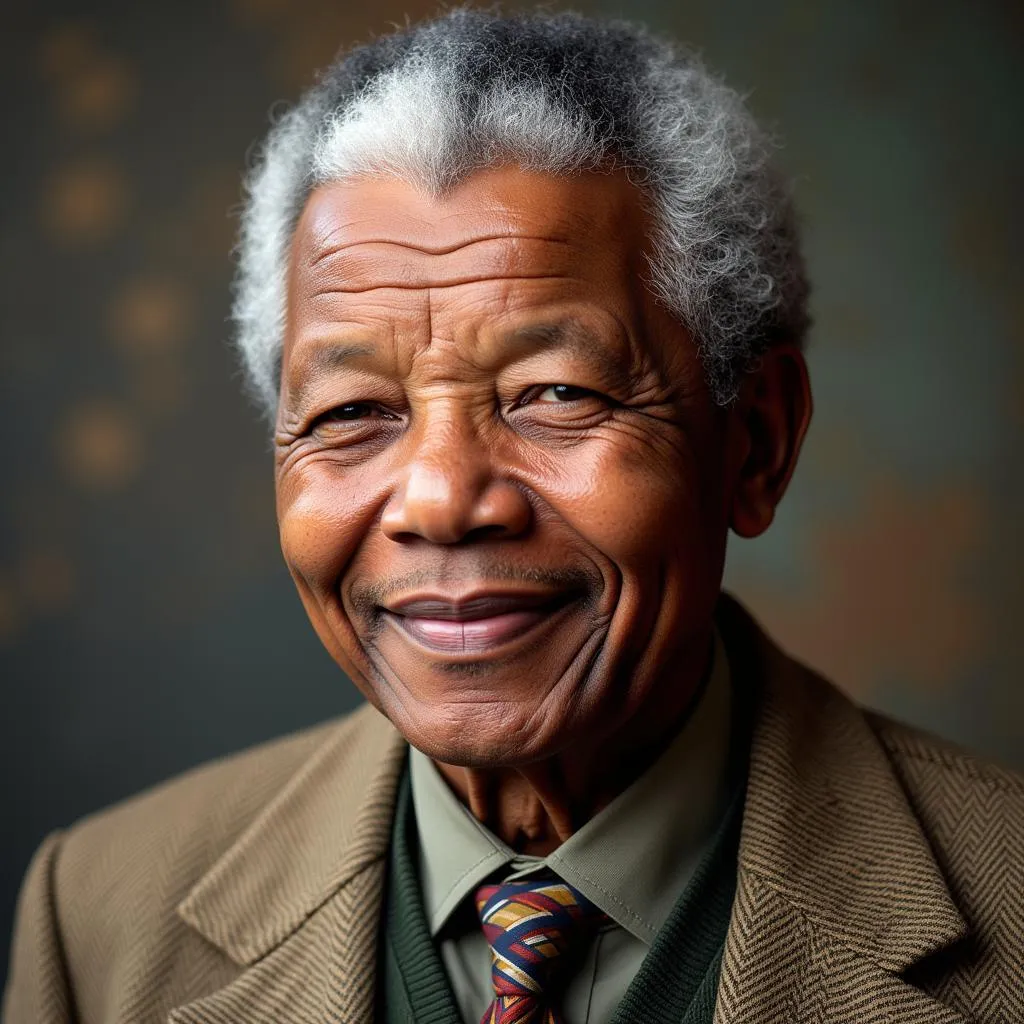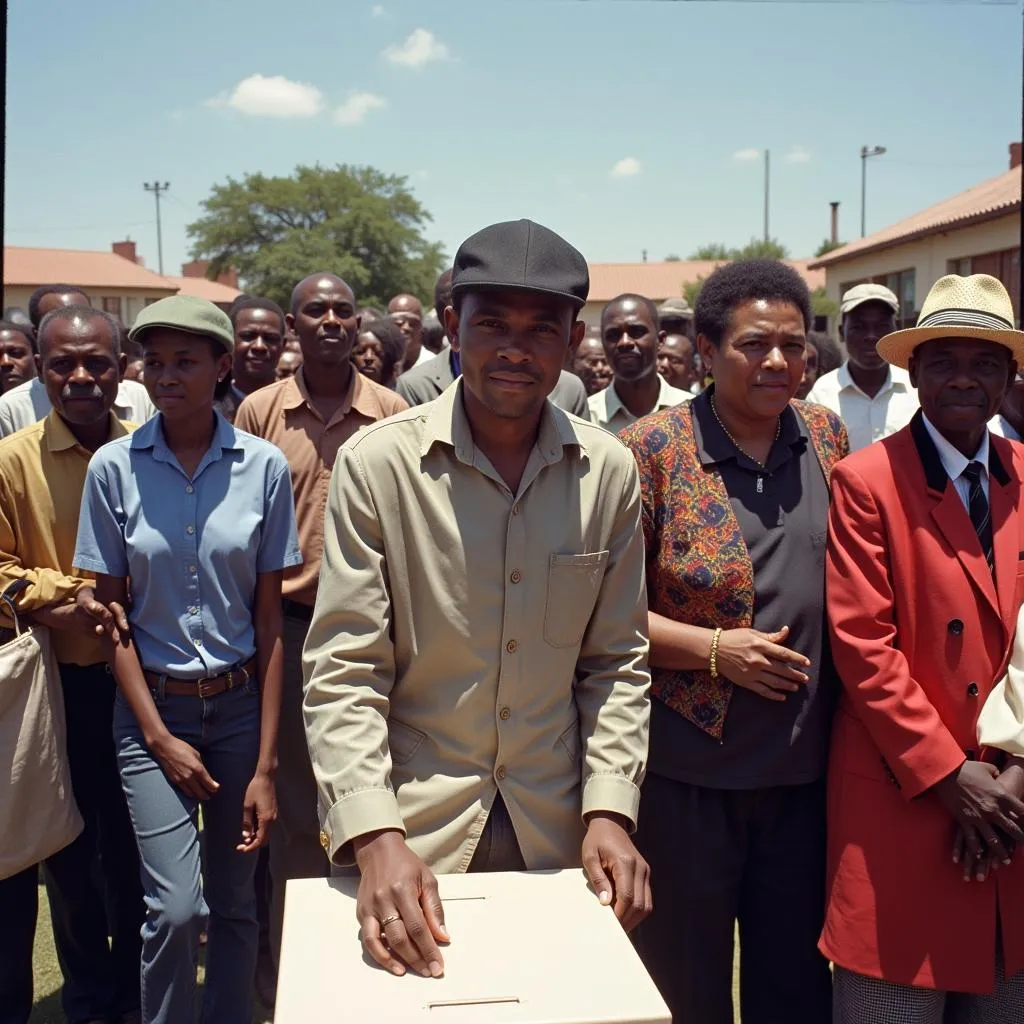South African Independence: A Journey to Freedom and Self-Determination
South African Independence is a remarkable story of resilience, struggle, and ultimately, triumph. It’s a narrative that resonates with people worldwide, offering lessons on the importance of democracy, human rights, and the pursuit of justice. This article delves into the key milestones, figures, and historical events that shaped South Africa’s path to independence, highlighting the profound impact it had on the nation and the world.
The Road to Freedom: A Legacy of Struggle
South Africa’s journey to independence is deeply intertwined with the fight against apartheid, a system of racial segregation and discrimination that dominated the country for decades. From the early 20th century, Black South Africans, along with other marginalized groups, faced systematic oppression, stripped of basic rights and subjected to violence and injustice. This struggle fueled a movement for change, with the emergence of influential figures like Nelson Mandela, who dedicated their lives to dismantling apartheid and securing a future of equality for all.
The Rise of Resistance and the Anti-Apartheid Movement
The fight against apartheid was a multifaceted struggle that encompassed various forms of resistance, from peaceful protests to armed struggle. Key organizations like the African National Congress (ANC) and the Pan Africanist Congress (PAC) played crucial roles in mobilizing the population and challenging the oppressive regime. The ANC, under the leadership of Nelson Mandela, became a symbol of hope and defiance, inspiring international solidarity and support for the anti-apartheid movement.
“The struggle against apartheid was not only about ending racial segregation, but about claiming our rightful place in society, and achieving full human dignity and equality,” explains Dr. Mbali Khumalo, a renowned South African historian.
The Dawn of a New Era: The Transition to Democracy
The 1990s marked a turning point in South Africa’s history, with the release of Nelson Mandela from prison after 27 years of confinement. This event sparked a wave of optimism and hope, signaling a shift towards negotiations and a transition to democracy. Following years of dialogue and political negotiations, the country held its first multiracial elections in 1994, leading to the establishment of a democratic government under the leadership of Nelson Mandela.
The Significance of the 1994 Elections
The 1994 elections were a watershed moment, demonstrating the triumph of democracy over oppression and marking a new chapter in South African history. They ushered in an era of reconciliation, healing, and nation-building, with a focus on dismantling the legacy of apartheid and establishing a society where everyone had equal opportunities. The election of Nelson Mandela as South Africa’s first black president was a resounding victory for the anti-apartheid movement, a testament to their perseverance and sacrifice.
Building a New South Africa: Challenges and Achievements
The transition to democracy brought about significant challenges, including addressing the socioeconomic inequalities ingrained by apartheid. The new government implemented policies to promote racial reconciliation, economic empowerment, and social justice, aiming to create a more inclusive and equitable society. While progress has been made, South Africa continues to grapple with issues like poverty, unemployment, and crime. However, the nation has made substantial strides in education, healthcare, and infrastructure development, demonstrating a commitment to building a brighter future for all its citizens.
The Legacy of South African Independence
South African independence stands as a beacon of hope for people around the world, serving as an inspiring example of the power of resilience and perseverance. It is a reminder that even in the face of adversity, the pursuit of freedom, equality, and human rights can prevail. Today, South Africa is a vibrant democracy, with a rich cultural heritage and a promising future. The country’s journey to independence serves as a powerful testament to the human spirit’s enduring capacity to overcome oppression and build a more just and equitable world.
FAQs
1. When did South Africa gain independence?
South Africa did not gain independence in the traditional sense, as it was never a colony. However, it achieved a democratic transition in 1994, ending the apartheid regime and establishing a multiracial democracy.
2. What were the key events leading to South African independence?
The key events include the rise of the anti-apartheid movement, the imprisonment of Nelson Mandela, the international sanctions against the apartheid regime, and the eventual negotiations between the government and the ANC that led to the 1994 elections.
3. Who are some of the prominent figures in the South African independence movement?
Prominent figures include Nelson Mandela, Oliver Tambo, Steve Biko, Walter Sisulu, and many others who played pivotal roles in the struggle against apartheid.
4. What are the major challenges facing South Africa today?
South Africa continues to grapple with issues like poverty, unemployment, crime, and inequality, all remnants of the apartheid era. The government is working to address these challenges through various social and economic programs.
5. What are the key lessons learned from South Africa’s journey to independence?
South Africa’s journey teaches us the importance of perseverance, the power of collective action, and the need for democracy and human rights for all. It also highlights the importance of international solidarity and the role of institutions in promoting justice and equality.
 South African flag waving in the wind
South African flag waving in the wind
 Nelson Mandela giving a speech
Nelson Mandela giving a speech
 South Africans voting in the first multiracial elections
South Africans voting in the first multiracial elections
This article provides a glimpse into the remarkable journey of South African independence, highlighting the struggles, sacrifices, and achievements that shaped the nation. It serves as a reminder that even in the face of adversity, the pursuit of freedom, equality, and human rights can lead to lasting change and a brighter future.



